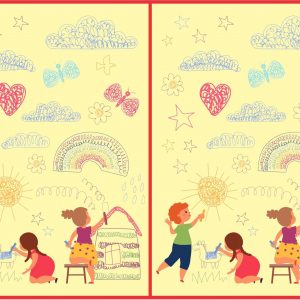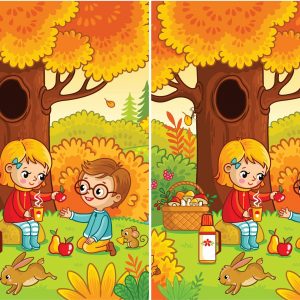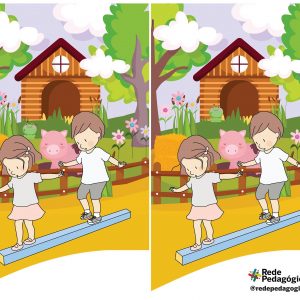The Power of Imagination: How Children’s Play Promotes Creativity and Emotional Growth
In the world of child development, play is often recognized as more than just fun. It’s an essential tool that helps foster creativity, imagination, and emotional intelligence. A perfect example of this concept can be seen in the image of a little girl holding her beloved doll. She radiates joy, while her doll, a replica of herself, mirrors the bond she shares with it. This simple yet powerful scene captures the essence of imaginative play, which is crucial for children as it serves as a foundation for cognitive, social, and emotional development. In this article, we will explore the profound impact of imaginative play, its benefits, and how it helps shape a child’s future.
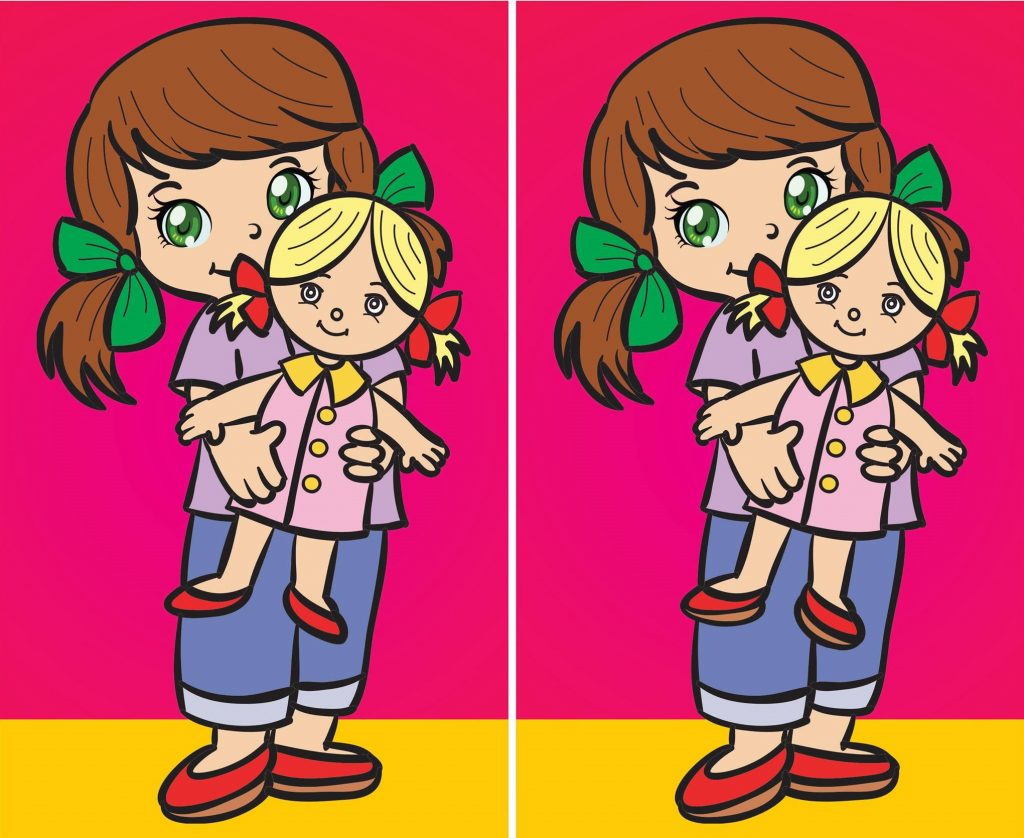
The Role of Imagination in Child Development
Children’s imagination is a boundless, beautiful thing. It’s through their imagination that they explore the world around them, learn to solve problems, and process their emotions. In the picture, the little girl and her doll seem to be sharing a world of their own, highlighting how imaginative play can provide a safe space for children to experiment with new scenarios and emotions. This kind of play encourages cognitive development, allowing children to grow into resourceful, creative individuals.
Imagination helps children develop problem-solving skills, as they invent stories and challenges within their play. For example, the girl in the image may be imagining her doll having an adventure, which leads to creative thinking. This process sharpens a child’s ability to think critically, plan, and even negotiate solutions with their imaginary friends. This is why imagination is often called the “workshop of the mind.”
Building Emotional Intelligence Through Play
One of the most vital benefits of imaginative play is its ability to nurture emotional intelligence. In the image, the girl is tenderly holding her doll, likely reflecting the affection she has for her toy. This simple act exemplifies how children practice care, empathy, and emotional bonding during playtime. By role-playing with dolls, children learn to express their feelings and understand the emotions of others, which is crucial for emotional growth.
For instance, while playing, a child may have their doll experience emotions like sadness or happiness. Through this, they learn how to respond empathetically, practicing emotional regulation and understanding. They may even mimic adult behaviors, as the girl in the image might be pretending to take care of her doll the way she sees her parents care for her. This type of role-playing helps children gain a sense of self and learn about the feelings of others, which is vital for healthy social interactions in the future.

The Social Benefits of Pretend Play
Although imaginative play may seem like a solitary activity, it can also be a highly social one. Children often engage in pretend play with others, collaborating to create complex scenarios or shared adventures. This builds their communication and social skills. The girl in the image could be interacting with other children, or even her parents, in an imaginary world. Whether playing house, school, or any other scenario, pretend play encourages children to take on different roles, cooperate, and negotiate with others.
As children grow, their ability to work in teams and communicate effectively is enhanced through social play. Role-playing games help them learn to negotiate, share ideas, and resolve conflicts in ways that prepare them for real-life situations. They practice the art of turn-taking, sharing, and compromising—valuable skills that help them navigate both friendships and family dynamics.
How Play Enhances Cognitive Development
It is not just social and emotional skills that are nurtured through play, but cognitive abilities as well. When children engage in imaginative play, they develop their language skills, memory, and ability to think abstractly. The girl in the image, holding her doll, may be imagining scenarios in which she and her doll speak, creating stories and dialogues. This kind of play promotes language development as children expand their vocabulary and learn to express themselves clearly.
Furthermore, imaginative play allows children to practice abstract thinking. They learn to consider possibilities, explore consequences, and construct new worlds in their minds. Cognitive skills such as these are fundamental for success in school and in life, as they prepare children for critical thinking tasks and problem-solving challenges they will face as they mature.

Encouraging Imaginative Play at Home
As parents and caregivers, it’s important to encourage and foster a space for imaginative play. While children can naturally engage in pretend play, adults can help them by providing opportunities and environments conducive to creativity. Here are some simple tips to encourage imaginative play at home:
Provide a Variety of Toys and Props
Toys like dolls, action figures, and dress-up clothes can spark creative thinking. Dolls, like the one in the image, can take on different personas in the child’s imagination, helping children explore a wide range of experiences. Provide items that are open-ended, such as building blocks, art supplies, and musical instruments, to encourage children to create and invent.
Create an Interactive Environment
Setting up themed areas at home, such as a mini kitchen or a pretend shop, can help children engage in imaginative role-playing. A simple cardboard box can also become a spaceship or a secret cave in a child’s mind. The more interactive and flexible the environment, the more creative the child can become.
Be a Play Partner
Sometimes, joining in on imaginative play can enhance the experience. By participating in pretend play, parents can guide their child through new scenarios, offer new ideas, and help them practice their social skills. If the girl in the image is playing with her doll, joining in by creating a narrative or asking questions about her imaginary world can make playtime even more engaging.

The Lifelong Benefits of Imagination
The benefits of imaginative play extend far beyond childhood. The skills developed during pretend play—such as creativity, emotional regulation, and problem-solving—are crucial throughout life. As adults, these early experiences shape how individuals approach challenges, navigate relationships, and come up with innovative solutions. A child who was encouraged to imagine freely is more likely to be adaptable, creative, and open-minded as they grow older.
Additionally, imaginative play can foster a sense of confidence. When children are allowed to take charge of their own play world, they feel empowered to make decisions, lead stories, and explore new ideas. This confidence in their creativity can carry over into all areas of life, from school to future careers.
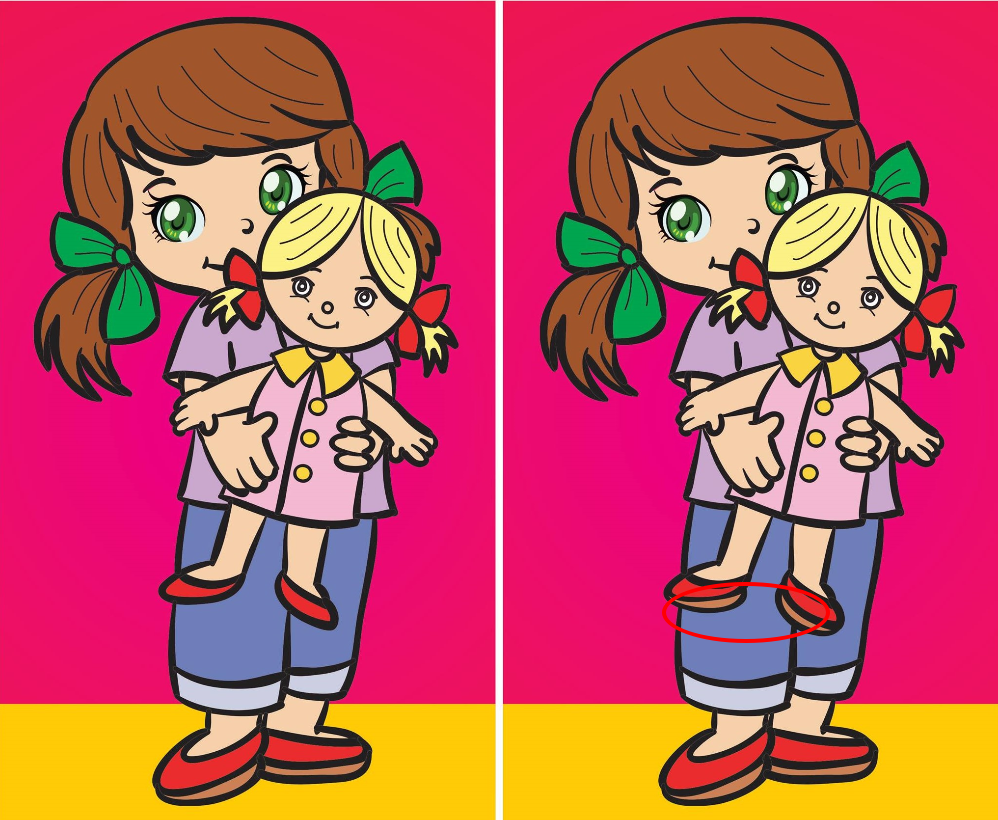
Conclusion: Imagination is the Key to Growth
In the picture, the young girl lovingly holds her doll, a simple gesture that represents much more than just play. It’s a reflection of the development of emotional intelligence, creativity, and social skills—critical aspects of childhood growth. Imaginative play, through dolls, dress-up, or any other pretend activities, provides children with the tools they need to navigate the world around them.
By encouraging play in children, we help lay the foundation for a future filled with creativity, empathy, and resilience. Play is not just a way to pass the time—it’s an essential part of growing up. So, let children play, imagine, and dream. After all, the world needs more creative thinkers, empathetic individuals, and resilient problem solvers, and it all begins with the simple act of imaginative play.
